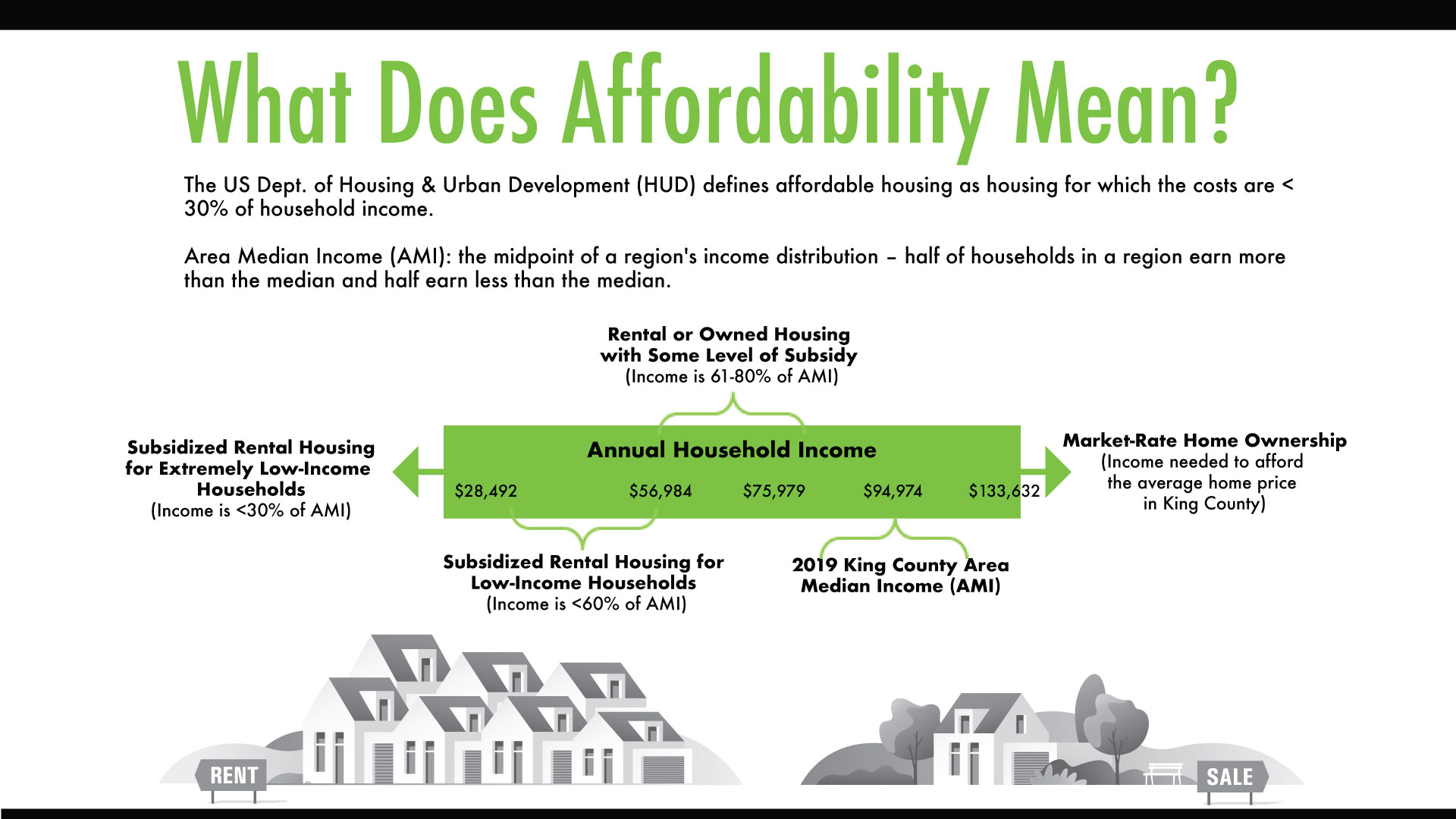On February 23rd sea.citi hosted a panel of local leaders to talk about ways tech companies are partnering with the public and nonprofit sectors to ease the complex housing crisis in our region.
Panelists:
- Alice Shobe, Amazon in the Community
- Faith Pettis, Pacifica Law Group
- Jane Broom, Microsoft Philanthropies
- Shkëlqim Kelmendi, Housing Connector
We kicked off the event with a brief explainer of what we mean by “affordability”.

Next, Faith gave us an overview of the local housing landscape. Faith is a preeminent attorney in the housing field, she co-chaired the City of Seattle Housing Affordability & Livability Agenda (HALA) Advisory Committee and participated in the Middle Income Housing Advisory Council. Faith explained that there are, in fact, three intersecting crises related to housing: a homelessness crisis, diminishing rental affordability, and a shortage of affordable home ownership opportunities. Though each of these challenges requires different solutions, they are all part of a codependent system. Faith also outlined the different local, state and federal programs that fund different segments of housing affordability and highlighted the lack of programs targeted at households making 80%-120% of area median income.
Alice provided insights into Amazon’s $2B Housing Equity Fund, including its focus on investing where traditional government entities aren’t as active — the middle-income/workforce housing space. The fund’s goals are to move quickly to:
- Preserve or create 25,000 affordable units across three geographies, Puget Sound, Arlington, VA, and Nashville, TN;
- Leverage Amazon’s scale and resources to invest below market rate; and
- Focus on BIPOC-led organizations and unlikely government partners such as libraries, transit authorities and school districts.
Jane shared Microsoft’s affordable housing efforts which were announced in 2019 and have made a significant impact. Jane emphasized the difficulty of this work and clarified that Microsoft’s ultimate goals are to catalyze housing policy change, and create new financial models to attract private capital to a broader range of housing solutions.
Shkëlqim gave an overview of the Housing Connector model, including the partnership with Zillow that created a new marketplace for people exiting homelessness. Housing Connector has had tremendous success in a very short period of time, addressing the immediate needs of both people seeking housing and landlords looking to fill vacancies. Incentives and mitigation for landlords have allowed Housing Connector to pre-negotiate and neutralize screening criteria that historically reinforced systemic racism in the housing market.
Overall, panelists agreed that the private sector has complementary strengths to the social sector, and together we can get more done through collaboration. The private sector’s flexibility, resources and relentless focus on the customer can help the social sector take on more risk and move more quickly to find solutions. The public sector’s appetite for long lead times for results, means that it’s primed for planning ahead and being proactive. Furthermore, housing is a systemic, regional issue that will require systemic, regional solutions.
Further reading:
- The Invisible Crisis — report by Challenge Seattle on Middle-Income Affordable Housing
- Puget Sound Regional Council’s Regional Housing Strategy
- King County Regional Affordable Housing Task Force
Calls to action from our panelists:
- Vote for candidates who know how to find common ground and aren’t afraid of compromise
- Dig below the headlines and look at the data
- Learn about and support MFTE
- Find ways to be a YIMBY instead of a NIMBY
Watch the discussion:
